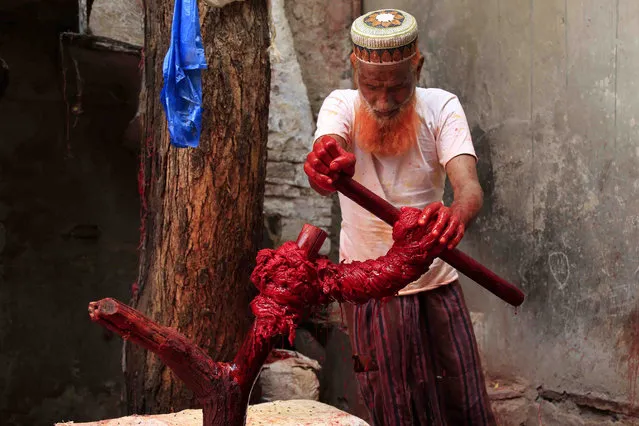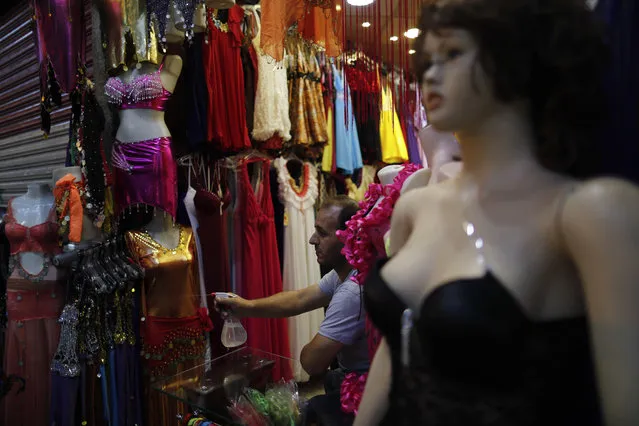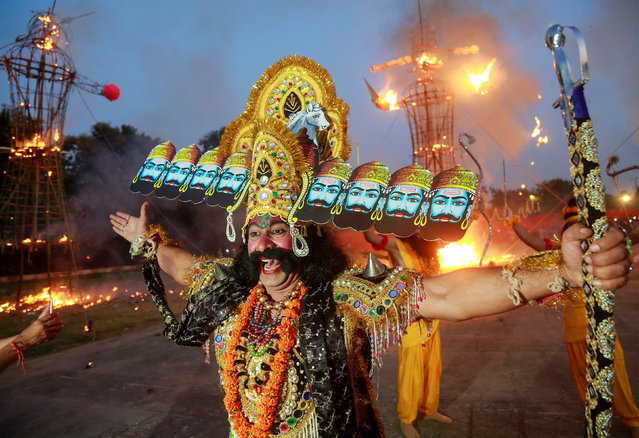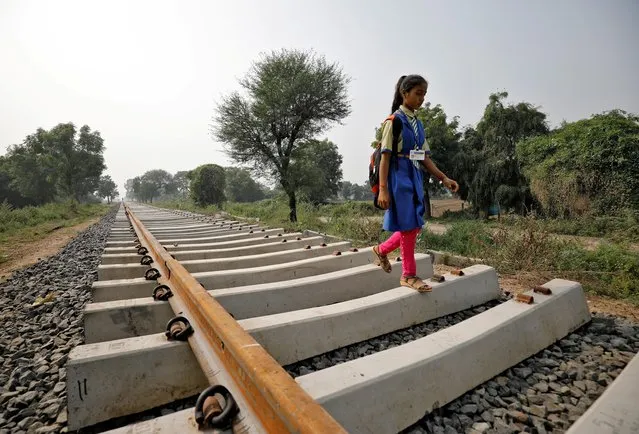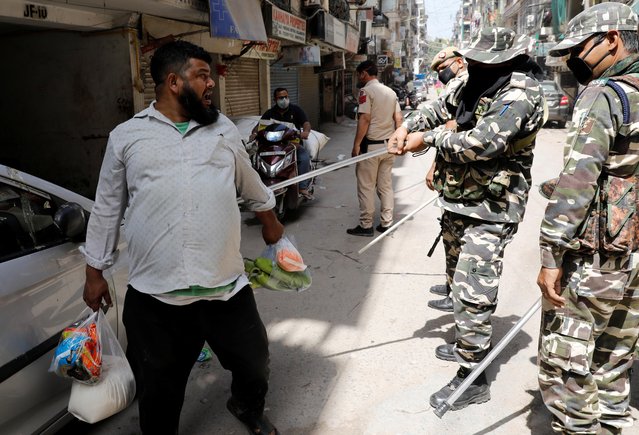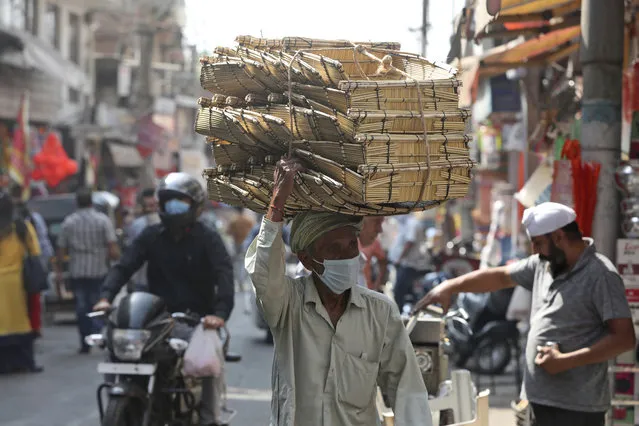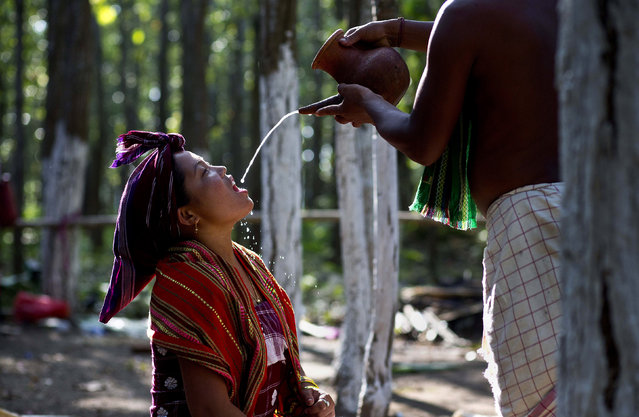
In this Monday, June 10, 2019 photo, an Indian Rabha tribal Hindu priest pours traditional rice beer to a Rabha girl to perform rituals during Baikho festival at Pantan village, west of Gauhati, India. Every year, the community in India’s northeastern state of Assam celebrates the festival, to please a deity of wealth and ask for good rains and a good harvest. (Photo by Anupam Nath/AP Photo)
15 Jun 2019 00:05:00,post received
0 comments

